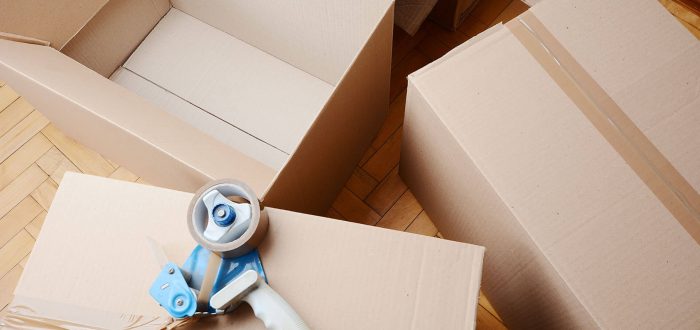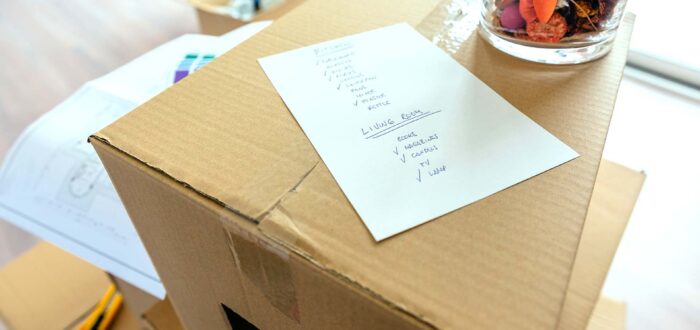

Don’t Leave These Behind: Top 8 The Most Commonly Forgotten Things to Pack for Your Move
Posted in Planning the Move on August 28, 2023
Relocating to a new home can be an exciting adventure. Still, with the chaos of boxes and organizing logistics, it’s all too easy to miss essential items. To ensure a smooth transition and avoid unnecessary stress, here is a list of the top seven most commonly forgotten things to pack that you should never leave behind when preparing for your move.
To ensure a smooth and organized relocation, create a comprehensive checklist and categorize items to avoid forgetting anything important. Bring valuables, important documents, and essential items separately and keep them with you for easy access. Take extra care when dealing with delicate and sentimental items, and consider making backups or creating inventories for insurance purposes. Notify utility providers in advance and organize essential documents in a designated folder. If something important is forgotten, assess the situation and find suitable alternatives or seek assistance.
#1 Documents and Identification Are Some of the Most Commonly Forgotten Things to Pack
One category of items that is often forgotten but holds significant importance is documents and identification. From passports and driver’s licenses to medical records and insurance information, these crucial documents are necessary for legal compliance, personal identification, and accessing vital services. Additionally, moving-related documents like lease agreements or rental contracts play a pivotal role in ensuring a smooth transition. Here’s what not to forget when packing important documents.
Passports, Driver’s Licenses, and Other Identification Documents
When preparing for a relocation, it’s essential to remember your passports, driver’s licenses, and other identification documents. These items are crucial for proving your identity, accessing certain services, and complying with legal requirements.
Forgetting them can lead to significant inconvenience, delays, and potential complications. Ensure that you bring these items securely in a designated folder or wallet and keep them within easy reach during your relocation. By doing so, you’ll have peace of mind knowing that you can readily identify yourself when necessary.
Moving-Related Documents, Such as Lease Agreements or Rental Contracts
Amidst the excitement of moving across country, it’s easy to overlook the importance of packing your moving-related documents. These documents may include lease agreements, rental contracts, or any other legal paperwork associated with your current or new residence.
Having these documents readily available is crucial for addressing any issues or questions that may arise during the relocation process. Whether you need to refer to specific terms and conditions, verify details, or settle any disputes, having these documents on hand can save you from unnecessary stress and complications. Prioritize organizing and safely packing these moving-related documents to ensure a smooth transition to your new home.
Medical Records, Prescriptions, and Insurance Information
Health-related documents are often overlooked during the chaos of long-distance moving, but they are vital to have on hand. Don’t forget to gather your medical records, including any recent test results, vaccination records, and information about ongoing treatments or conditions.
Additionally, make sure to bring your prescription medications and any necessary medical equipment in a safe and accessible place. Remember to include your health insurance information, as it may be required for medical emergencies or new healthcare providers in your destination. By prioritizing these essential documents, you’ll be better prepared to address any healthcare needs that may arise during or after your relocation.

#2 Essential Toiletries and Medications
One of the most commonly overlooked categories is essential toiletries and medications. These items are often left behind amidst the rush of organizing belongings. Remember to bring your toothbrush, toothpaste, and other oral care items to maintain your dental hygiene during the transition. Additionally, don’t forget to include soap, shampoo, and other personal hygiene products to ensure you can stay clean and refreshed in your new home.
Equally important is remembering to bring your prescription medications and any necessary over-the-counter medicines. Having these medications readily available ensures you can continue your healthcare routine without interruption. Prioritizing these toiletries and medications will help you feel comfortable and prepared as you settle into your new surroundings.
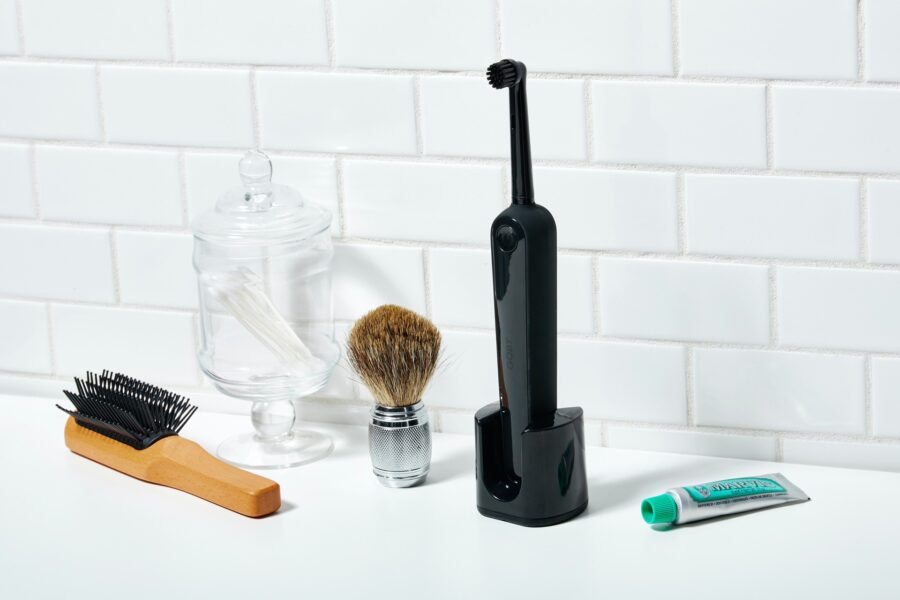
#3 Valuables and Personal Items
When embarking on a relocation, it’s crucial not to overlook the category of valuables and personal items. Among these items are jewelry, watches, and other valuable accessories that hold both monetary and sentimental value. These small and often delicate items can be easily misplaced or forgotten during the chaos of packing.
To ensure their safety, it is advisable to have them packed separately in a secure and easily accessible container. Taking the time to create an inventory and photograph your valuable items can also be helpful for insurance purposes. By giving special attention to these items, you can protect them and guarantee they are safely transported with you to your new home.
Sentimental Items, Such as Photo Albums or Family Heirlooms
Sentimental items play an irreplaceable role in our lives, yet they are frequently overlooked during the relocation process. Photo albums, family heirlooms, and other cherished mementos carry memories and personal connections that are invaluable. While these items may not hold substantial monetary worth, their sentimental significance cannot be measured.
When preparing for a relocation, set aside dedicated time to gather and secure these items properly. Use sturdy boxes or containers to package them, and clearly label them as fragile and valuable. Taking these extra precautions ensures that your sentimental items remain safe and protected during the moving journey, allowing you to bring a sense of familiarity and warmth to your new place.
Electronic Devices, Chargers, and Important Data Backups:
In our technologically driven world, electronic devices have become indispensable. Forgetting to bring essential devices such as laptops, tablets, or smartphones can cause significant inconveniences. Additionally, remember to gather all the necessary chargers and cables to ensure you can power and utilize your devices in your new home.
It is also crucial to make important data backups before the relocation. Create copies of vital files, documents, and photos to safeguard them from potential loss, damage, or other relocation mistakes during the transition. By prioritizing the packing of electronic devices and data backups, you can stay connected, productive, and secure in your new environment, avoiding the stress and hassle of being without your essential tech tools.
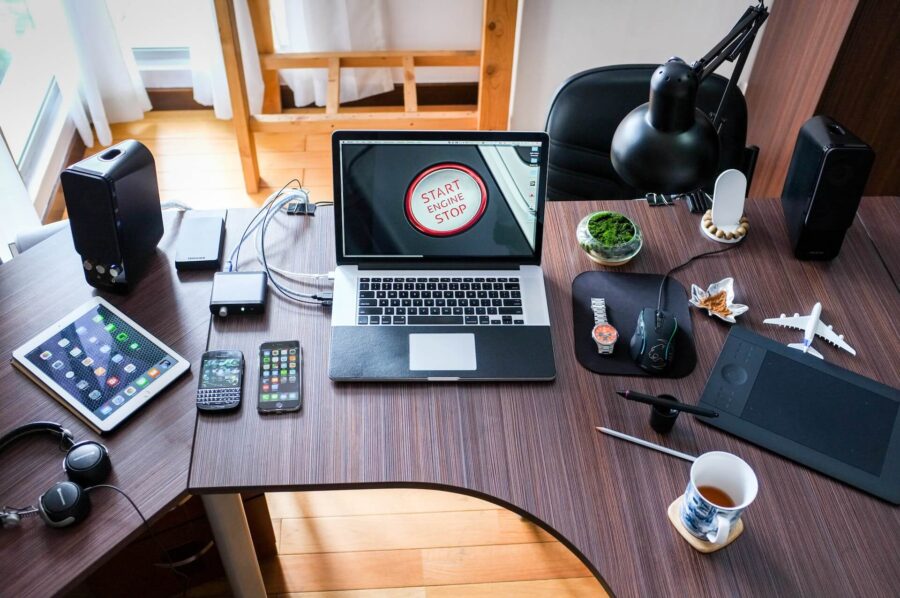
#4 Cleaning and Kitchen Supplies
When it comes to things not to forget when packing, it’s important not to overlook the category of cleaning and kitchen supplies. These items are essential for maintaining cleanliness and functionality in your new home.
One key item to remember is an all-purpose cleaner, wipes, or disinfectants to ensure a clean and hygienic environment. Don’t forget to bring basic cleaning tools such as a broom, dustpan, and mop to tackle any messes that may arise during the relocation or upon arrival. It’s also crucial to have paper towels, garbage bags, and toilet paper readily available to address immediate cleaning and sanitation needs.
In terms of the kitchen, pack utensils, plates, and cups for immediate use, as well as cooking essentials like pots, pans, and knives. Lastly, consider packing non-perishable food items and snacks for the first few days in your new home to sustain yourself as you settle in. By prioritizing these cleaning and kitchen supplies, you can ensure a clean and functional living space from the moment you arrive.

#5 Clothing and Bedding Can Also Slip Your Mind
During the chaotic process of organizing a relocation, it’s easy to overlook the importance of packing clothing and bedding. Ensuring you have sufficient clothing for several days is crucial, including underwear and socks. Keep in mind that, during the moving process, you may not have immediate access to your entire wardrobe, so bring enough outfits to last until you can fully unpack.
In addition to clothing, don’t forget to pack bedding essentials such as sheets, pillows, and blankets to ensure a comfortable night’s sleep in your new home. It’s also important to consider seasonally appropriate outerwear and accessories.
Depending on the climate of your new location, pack coats, jackets, hats, scarves, and gloves to stay comfortable and protected from the elements. By prioritizing these clothing and bedding items, you can ensure that you have what you need to stay comfortable and well-rested during the relocation and in your new living space.
#6 Tools and Basic Hardware
Having the right tools at your disposal can make a significant difference in addressing unexpected situations and ensuring a smooth and efficient relocation to your new home. From assembling furniture to fixing minor repairs, having a well-equipped toolbox is essential. Additionally, basic hardware items like screws, nails, and picture hangers can come in handy when setting up your new living space.
Basic Toolkit With a Screwdriver, Hammer, and Pliers
A basic toolkit is a must-have when it comes to moving. Don’t forget to pack essential tools such as a screwdriver, hammer, and pliers. These versatile tools will be handy for various tasks during the relocation. Having a reliable toolkit readily available ensures that you can handle unexpected situations efficiently and avoid unnecessary delays or frustrations.
Flashlights, Batteries, and Light Bulbs
Amidst the hustle and bustle of a relocation, it’s easy to overlook the importance of lighting essentials. Don’t forget to pack flashlights, spare batteries, and light bulbs. These items are essential for navigating your new space, especially during the initial stages when you may not have all the lights installed or connected yet.
A flashlight will come in handy if you need to explore dark corners or search for items in poorly lit areas. Having spare batteries and light bulbs ensures that you can quickly replace any burnt-out bulbs or power up your flashlights as needed.
Zip Ties, Duct Tape, or Other Versatile Fasteners
When it comes to securing and organizing items during a relocation, zip ties, duct tape, or other versatile fasteners are invaluable. These items can be easily overlooked but play a crucial role in keeping things in order. Zip ties can help bundle cables and cords together, keeping them tangle-free during transportation. Duct tape can be used for temporary fixes or securing boxes and packages. Including these versatile fasteners in your packing supplies will make it easier to manage and organize items, ensuring a smoother and more efficient moving experience.
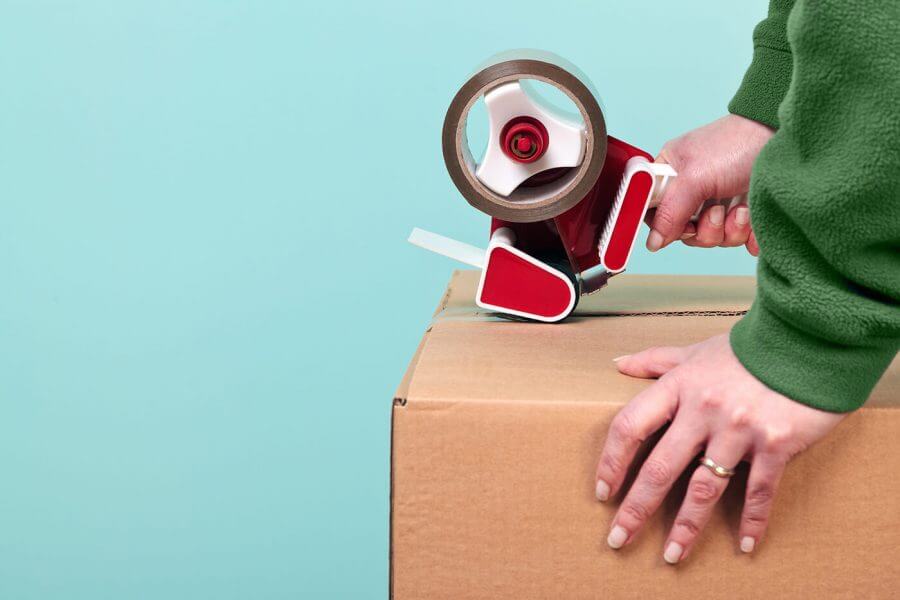
#7 Pet Supplies
When wondering “what did I forget to pack,” it’s important not to forget about your furry companions and items that are essential for a smooth transition. If you’re moving with pets, don’t overlook packing the necessary supplies for your pets, such as their food, water bowls, treats, and any required medications.
Additionally, remember to bring leashes, litter boxes, and other items specific to your pets’ needs. Comfort items like pet beds or toys can also help ease their transition to the new environment. If you’d like more tips on how to relocate with pets, watch this video.
#8 The Essentials – Keys, Money, Electronics
It’s crucial to include miscellaneous items like spare keys for both your house and car, ensuring you have backups in case of any mishaps or misplaced keys. Don’t forget to pack your phone chargers, headphones, and other electronic accessories, as staying connected is vital during the moving process. Lastly, remember to bring cash, credit cards, and important contact numbers for any unforeseen circumstances or emergencies.

When You Are Sure There Won’t Be Items Left Behind, Call Movers to Do the Heavy Lifting
Once you have carefully organized and packed all your belongings, ensuring that there won’t be any items left behind, it’s time to call in and hire professional long-distance movers to handle the heavy lifting. Moving can be physically demanding and mentally exhausting, so entrusting this task to experienced movers can alleviate relocation stress and ensure a smoother transition. Movers have the expertise, equipment, and manpower to efficiently handle packing services and load and unload your belongings, minimizing the risk of damage and helping avoid injury.
By enlisting their cross-country moving services, you can focus on other aspects of the relocation and have peace of mind knowing that your possessions are in capable hands. Whether it’s furniture, large items, or heavy boxes, professional movers will handle the logistical challenges, making your move easier and hassle-free.
Follow Our List and You’ll Bring Everything Into Your New Home
In conclusion, by following our comprehensive list of commonly forgotten items, you can ensure that nothing important is left behind. By being diligent and thorough in your packing process, you can bring everything you need into your new home. Remember to prioritize organization, create checklists, and allocate sufficient time to pack each category. And, more importantly, remember to contact us in time and hire Cross Country Movers to handle every aspect of your move and transport your belongings safely, ensuring nothing is left behind.
FAQ
How Can I Make Sure Not to Forget These Items When Packing?
To avoid forgetting items when packing, create a comprehensive relocation checklist and categorize items by type. Start packing well in advance and review the checklist regularly to ensure everything is accounted for. That way you won’t end up buying things when relocating.
Can I Make a Checklist to Help With Packing These Commonly Forgotten Items?
Yes, making a checklist is highly recommended. Include commonly forgotten items such as documents, valuables, pet supplies, cleaning supplies, and electronics. Use the checklist as a guide and mark off items as you pack them.
Should I Pack These Items Separately or Keep Them With Me During the Move?
It’s advisable to keep valuables, important documents, and essential items with you during the move. Put them separately in a secure bag or container to ensure their safety and easy access.
Are There Any Specific Packing Tips for Valuables and Sentimental Items?
Wrap delicate items in protective materials, label them as fragile, and consider using a separate box or container for valuables and sentimental items. Take photographs or create an inventory for insurance purposes.
Should I Notify My Utility Providers Before Moving to Ensure a Smooth Transition?
Yes, it’s important to notify utility providers in advance to schedule disconnections at your current residence and connections at your new home. This ensures a smooth transition and uninterrupted services.
How Can I Organize and Keep Track of Essential Documents During the Move?
Create a designated folder for essential documents and keep them in a secure and easily accessible place. Consider making digital copies and storing them securely. Label the folder clearly.
Is There Anything Else I Should Consider When Packing for a Long-Distance Move?
Consider the duration of the journey, the climate at your destination, weight restrictions, and any specific regulations. Pack enough clothing, toiletries, medications, snacks, and entertainment items for the journey.
What Should I Do if I Realize I Forgot to Pack Something Important?
Assess the situation and determine if the item can be purchased or replaced at your destination. Consider reaching out to others for assistance or finding suitable alternatives. Adapt and find a solution as needed.



